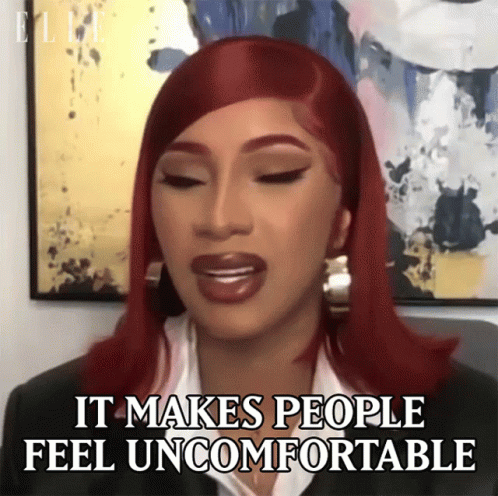As a PhD student exploring the underrepresentation of ethnic minority career development practitioners in the career development sector in England, I’ve become aware of the discomfort that can arise when using certain terms to describe race. Specifically, when it comes to describing a largely White workforce in the sector, I initially found it jarring to say the word “White.” However, I came to realise that this discomfort is not necessarily a result of using discriminatory language or saying anything untrue. It’s simply an accurate description of the demographic makeup of the workforce, and getting comfortable with the language is an important step in acknowledging and addressing the lack of diversity in the sector.

The fact that a homogenous workforce may not be best placed to serve an increasingly diverse society is a crucial point that I’ve had to navigate in conversations about my research. Often, when I tell people what my PhD is on, I’m met with silence or indifference. But the reality is that a lack of diversity in the career development sector has real-world implications for people from ethnic minority backgrounds. It can lead to a lack of representation, understanding, and cultural sensitivity in career advice and support.

This Forbes article by Dana Brownlee raises an interesting point about why the phrase “White women” can be triggering for many White women. The article features input from Race2Community members, including Shannon Lazar, a white woman who works as a Director of Learning, Development, and Inclusion. According to Lazar, using “White” to describe white people is simply an accurate description of people of her race. “When I use white to describe people of my race, I can see how surrounded by whiteness I am. It creates an awareness that I know not every white person is ready to see,” she explains.
This awareness is essential in understanding the lack of diversity in the career development sector, and why it’s important to use accurate and descriptive language when talking about race. It’s not about shaming or blaming anyone, but rather about acknowledging the reality of the situation and working towards a more inclusive and equitable future.

My research has taught me the importance of using accurate and descriptive language when talking about race in the career development sector in England. While it may be uncomfortable at first, it’s essential in acknowledging the lack of diversity in the sector and working towards a more inclusive and equitable future. And as Shannon Lazar’s comments in the Forbes article highlight, using “White” to describe people of her race can create an awareness that not everyone is ready to see. But it’s a necessary step in the journey towards a more diverse and inclusive society.

What can we do to address underrepresentation and make the sector more representative of society?
Well…this is the million dollar (£ actually if contextualised in England 😂) question

The issue of underrepresentation of ethnic minority career development practitioners in the career development sector in England is a critical problem that needs to be addressed. If we are to create a more diverse and inclusive sector, it’s essential to take action to increase representation and create a workforce that better reflects the communities it serves. Here are some things that can be done to address underrepresentation in the career development sector to become more inclusive and ethnically diverse:

- Increase awareness of the issue: The first step in addressing underrepresentation is to increase awareness of the problem. This can be done by discussing the issue with colleagues, sharing research, and highlighting the experiences of those affected by the lack of diversity in the sector. Creating a culture of openness and awareness is essential in building support for change.
- Promote diversity in recruitment: To increase diversity in the career development sector, it’s important to promote diversity in recruitment. This can involve creating targeted recruitment strategies aimed at ethnic minority communities, partnering with local community organisations, and promoting the sector as a viable career option for people from all backgrounds.
- Create inclusive working environments: Creating inclusive working environments is essential in attracting and retaining ethnic minority career development practitioners. This can involve providing training and support to ensure that all staff feel valued and included, promoting cultural sensitivity, and celebrating diversity.
- Advocate for change: Advocacy is an essential tool in addressing underrepresentation in the career development sector. This can involve engaging with policymakers and industry leaders to promote change, sharing research and best practices, and advocating for diversity and inclusion initiatives.
- Mentor and support ethnic minority career development practitioners: Providing mentorship and support to ethnic minority career development practitioners can help to address underrepresentation in the sector. This can involve creating mentorship programs, providing networking opportunities, and offering training and development opportunities to help ethnic minority practitioners advance in their careers.

Addressing underrepresentation of ethnic minority career development practitioners in the career development sector in England requires a multifaceted approach that involves increasing awareness, promoting diversity in recruitment, creating inclusive working environments, advocating for change, and providing mentorship and support to ethnic minority career development practitioners. By taking these steps, we can create a more diverse and inclusive sector that better reflects the communities it serves and ensures that everyone has access to quality career advice and support.
Phases of my Study: Understanding and Addressing Underrepresentation in the Career Development Sector
My PhD research explores the underrepresentation of ethnic minority career development practitioners in the career development sector in England using a decolonial lens. To gain a deeper understanding of the issue, I’m conducting a three-phase study. Here’s an overview of the study:
Phase One – Explored the Whole Sector: In this phase, I conducted a survey of the entire career development sector in England to explore the current demographic makeup of the workforce. This involved gathering data on the ethnicity, gender, age, and socioeconomic background of career development practitioners in the sector. By the end of this phase, I gained a broad understanding of the issue and laid the foundation for the subsequent phases. This phase was completed in October to December 2022 for data collection and subsequent thematic analysis from January – April 2023.
Phase Two – Explore with Underrepresented Voices: In this phase, I will conduct participatory focus groups with underrepresented ethnic minority career development practitioners to explore their experiences in the sector. This will involve gathering qualitative data on their experiences of working in the sector, any challenges they face, and their recommendations for improving diversity and inclusion. By engaging directly with underrepresented voices, I aim to gain a deeper understanding of the issue and develop insights into how the sector can be made more inclusive. This phase will begin next month in May 2023.
Phase Three – Engage with Stakeholders to Put Forward Recommendations: In the final phase, I will engage with stakeholders to put forward recommendations for addressing underrepresentation in the sector. This will involve conducting a participatory focus group with a diverse range of stakeholders, including employers, policymakers, and industry leaders. Based on the results from the first two phases, I will develop a set of recommendations for improving diversity and inclusion in the sector. This phase is scheduled for June 2023.
I’m excited to see what insights my research will yield and how it can contribute to creating a more diverse and inclusive career development sector in England. By conducting a three-phase study, I aim to gain a comprehensive understanding of the issue and develop recommendations that can make a real difference. The next step is to move forward with phase two and three and work together with stakeholders to create a more equitable and inclusive sector

